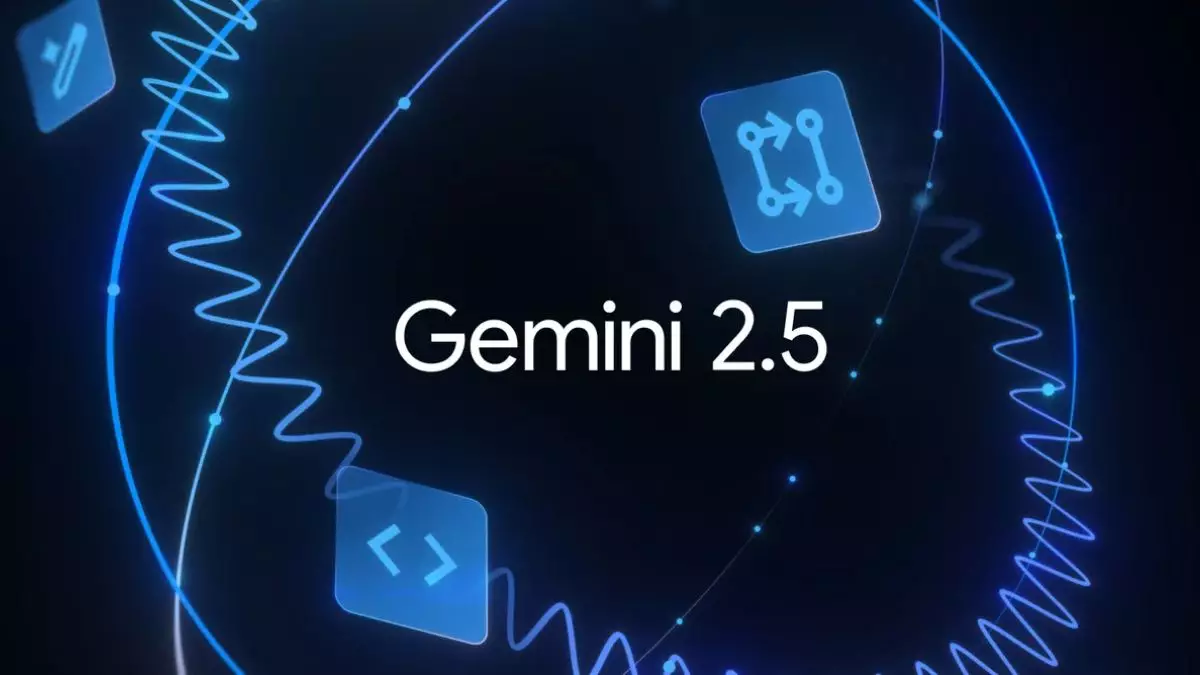The technological landscape is witnessing a seismic shift with Google’s latest launch of the Gemini 2.5 AI models. By making the Gemini 2.5 family publicly accessible, Google has taken a decisive step towards democratizing artificial intelligence. It’s a bold move that positions the company at the forefront of AI development, catering not only to those with deep pockets but also to everyday users eager to engage with cutting-edge technology. However, an underlying skepticism looms: is this advancement a genuine leap forward or merely an incremental update cloaked in ambitious rhetoric?
A Democratized AI Experience
One of the standout features of this rollout is the availability of the Gemini 2.5 Pro model to free-tier users. This opens doors that were previously restricted, allowing a broader audience to experiment and innovate with powerful AI tools. It’s an exciting development, yet it raises questions about the digital divide. Will this accessibility genuinely lead to wider participation in AI development, or will it merely become a superficial engagement for most users? For the truly ambitious developer or entrepreneur, constrained daily prompts could inhibit their potential. The disparity between those who can pay for the Pro model and free-tier users seems like a missed opportunity for fostering creativity.
Moreover, the inclusion of the Gemini 2.5 Flash-Lite model presents intriguing possibilities. Positioning itself as Google’s fastest and most cost-effective AI model, Flash-Lite ensures that high performance doesn’t come with a prohibitive price tag. With features that eliminate latency and enhance real-time applications like translation and classification, it appears that Google is leveraging the power of AI to streamline our interactions with technology. But can we truly trust that these improvements won’t come at the cost of accuracy? There is a fine line between speed and reliability, and how Google navigates this territory will define the user experience.
The Shift from Preview to Stability
Transitioning from a preview phase to stable versions is a crucial milestone. Previously plagued by errors and unexpected glitches, the Gemini models now promise a more polished experience. However, the shadow of the preview period lingers—users may harbor reservations about adopting these tools fully. After all, testing the waters of AI indicates a learning curve fraught with errors. The migration to stable versions may feel more like a rebranding exercise than a genuine enhancement. Users eagerly awaiting improvements might find themselves more disappointed than elated if the stable versions fail to meet inflated expectations.
Underlying this rollout is a critical economic question: how will Google sustain the demand for these advanced tools without compromising quality? The competitive nature of tech giants, especially amid a surge of interest in AI, means that any missteps could result in a loss of market share. Users are demanding reliability, yet they are also accustomed to rapid evolution in technology; the constant need to adapt may pose challenges that even a giant like Google could struggle to meet consistently.
The Prospect of Personalized AI
The introduction of the Personalisation Preview model raises important discussions about data privacy and user experience. By allowing the AI to access a user’s Google Search history, Google is taking a bold step towards creating a more tailored AI interaction. While this level of personalization can enhance the user experience by providing contextual responses, it also stirs discomfort among privacy advocates. How much of ourselves are we willing to give to our machines in exchange for convenience? This trade-off is vital to consider in a world increasingly driven by data analytics and artificial intelligence.
Conversely, Google’s integration of the Flash-Lite and Flash models into its search engine signifies the convergence of content and context, presenting a future where our online interactions are seamlessly augmented by intelligent systems. This blending of tools can spell exciting prospects but also spells a cautionary tale about dependency. If we leave critical thinking at the door, swayed by immediate AI responses, we risk creating a populace less equipped to engage with the intricacies of information.
As Google continues to refine and improve its AI offerings, the stakes become higher. The advancements represented by Gemini 2.5 highlight the potential of AI to transform our lives, but they also expose ideological divides and ethical questions that must be confronted as we march toward an increasingly AI-driven future. The question remains: will we harness this technology for the collective good, or will its impacts serve to deepen existing societal rifts? Only time will unveil the true ramifications of Google’s ambitious plans in the realm of artificial intelligence.

